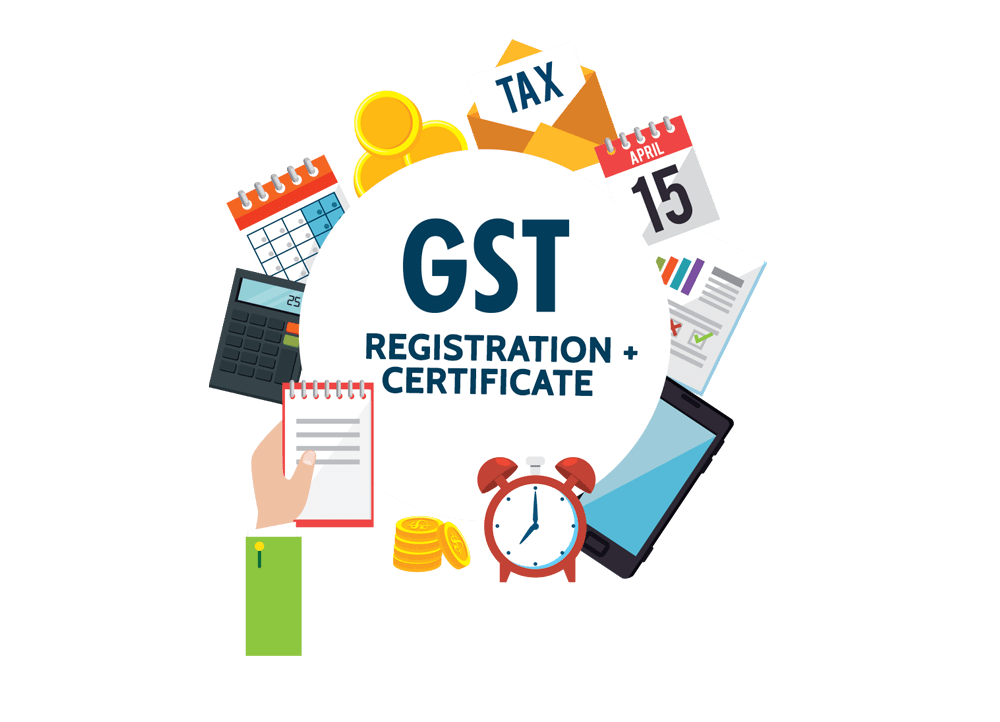Making The Most Of Tax Effectiveness: Professional Tips on Navigating the GST Registration Puzzle for Local Business
Navigating the complex landscape of Item and Services Tax (GST) registration can be a labyrinthine task for local business aiming to maximize their tax obligation performance. Recognizing the qualification criteria, thorough documents demands, calculated timing considerations, and skilled registration process pointers can significantly influence a business's monetary standing. Compliance with GST laws is extremely important, and adhering to best methods can enhance operations and prevent potential mistakes. In this discussion, we will certainly explore expert understandings and workable suggestions that can equip small companies to navigate the GST enrollment maze properly and enhance their tax obligation effectiveness.
Eligibility Requirements
Qualification needs for Small Company GST Registration encompass particular requirements that businesses need to satisfy to conform with tax policies. To qualify for GST enrollment, a business must have a yearly turn over surpassing the threshold established by the tax obligation authorities, which differs by nation.

Paperwork Requirements
To successfully finish the procedure of GST registration, local business must guarantee they have all required documents in order. The required documents normally includes evidence of service enrollment or address, identification and consolidation evidence of business owner, pictures, savings account information, and proof of the major location of organization. In addition, organizations need to give details of their company tasks, including the services or items provided. It is vital to guarantee that all records are accurate, approximately date, and in the defined layout to stop delays or denials during the registration process.
Apart from the compulsory documents, businesses may likewise be needed to submit additional information based on their particular scenarios. This can consist of papers connected to collaborations, the consent of signatures, or any kind of various other appropriate contracts. Keeping all required documentation organized and readily easily accessible can simplify the registration procedure and aid businesses adhere to the requirements efficiently - Singapore GST Registration. Failing to give the needed paperwork might lead to delays and even denial of the GST enrollment application. Careful interest to detail and adherence to the paperwork guidelines are vital for an effective GST registration procedure for little businesses.
Timing Factors To Consider
Taking into consideration the necessary documentation needs have been thoroughly dealt with, the following important element for small companies starting the GST registration procedure is the tactical monitoring of timing factors to consider. Timing plays a critical duty in GST registration, influencing not only compliance yet also monetary facets of the service. Local business require to carefully prepare the timing of their GST enrollment to take full advantage of advantages and lessen possible risks.

Moreover, services must straighten the timing of their GST registration with their operational readiness. Adequate prep work, such as upgrading audit systems and training team, is necessary to seamlessly incorporate GST needs right into everyday operations. By strategically managing timing factors to consider, little companies can navigate the GST enrollment procedure successfully and optimize their tax obligation effectiveness.
Registration Process Tips
Successfully browsing the GST registration procedure calls for small organizations to execute critical and proactive registration process ideas. This consists of organization enrollment papers, proof of address, financial institution declarations, and recognition evidence of the company proprietors.
Furthermore, understanding the thresholds and demands for GST enrollment based on the particular state or area where the business operates is image source vital. Some states have various turn over limits that trigger obligatory enrollment, so being educated about these thresholds can assist organizations intend ahead.
One more beneficial tip is to consider seeking expert help from accounting professionals or tax obligation consultants who focus on GST registration. Their experience can streamline the process, lower mistakes, and make certain conformity with all laws.
Conformity Ideal Practices
Navigating the GST registration process efficiently demands not just critical enrollment procedure pointers yet additionally thorough adherence to conformity finest methods to ensure continuous regulatory alignment. Small companies must focus on conformity to stay clear of charges and preserve a great standing with tax authorities. One essential best method is to keep precise and in-depth records of all transactions. This consists of billings, receipts, and various other monetary files that may be needed for tax obligation audits or compliance checks. Additionally, remaining notified concerning any updates or modifications to GST laws is crucial. Little business proprietors must consistently examine government standards and seek specialist guidance if needed to guarantee they are meeting all needs. It is additionally suggested to file GST returns in a timely manner to prevent late charges and charges. By integrating these conformity finest practices into their procedures, tiny businesses can navigate the intricacies of GST enrollment with self-confidence and performance.
Final Thought
In conclusion, small companies can navigate the GST registration puzzle by guaranteeing they meet eligibility criteria, gather called for documentation, think about timing ramifications, comply with enrollment process ideas, and stick to conformity best techniques. By making the most of tax obligation efficiency via proper GST enrollment, businesses can improve their financial administration and operations.
Navigating the detailed landscape of view it now Goods and Provider Tax Obligation (GST) registration can be a labyrinthine task for small companies aiming to optimize their tax efficiency.Qualification needs for Small Service GST Enrollment include particular criteria that services have to fulfill to comply with tax obligation regulations. The needed documentation normally consists of proof of organization enrollment or address, identification and consolidation evidence of the service owner, my link photographs, financial institution account details, and proof of the major place of company. In addition, businesses require to supply details of their business tasks, including the solutions or items provided.Efficiently browsing the GST enrollment process requires small businesses to carry out critical and positive enrollment procedure ideas.